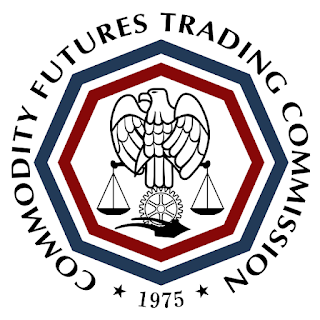The Commodity Futures Trading Commission (CFTC) is an independent regulatory agency of the United States government. Established in 1974, the CFTC's primary role is to regulate the U.S. derivatives markets, including futures, options, and swaps. Its mission is to promote the integrity, resilience, and vibrancy of these markets through sound regulation.
The CFTC's Role and Responsibilities
The CFTC's responsibilities are multifaceted and encompass a wide range of activities, including:
- Market Oversight: The CFTC monitors and oversees the activities of futures exchanges, clearinghouses, and swap dealers to ensure fair and orderly markets.
- Regulatory Authority: The CFTC has the authority to enact regulations governing the trading of futures, options, and swaps, including rules governing margin requirements, position limits, and market manipulation.
- Enforcement: The CFTC investigates and prosecutes violations of the Commodity Exchange Act (CEA) and CFTC regulations, which can include fraud, manipulation, and other illegal activities.
- Consumer Protection: The CFTC is committed to protecting consumers from fraud, manipulation, and other abusive practices in the derivatives markets.
- Market Integrity: The CFTC works to ensure the integrity of the derivatives markets by promoting transparency, reducing systemic risk, and fostering innovation.
The CFTC's Impact on the Financial Markets
The CFTC's regulatory oversight has a significant impact on the global financial markets. By ensuring the integrity and stability of the derivatives markets, the CFTC helps to mitigate systemic risk and protect investors. The agency's regulations also contribute to market efficiency and innovation, which benefits both market participants and the broader economy.
Key CFTC Initiatives
The CFTC has undertaken several key initiatives to modernize its regulatory framework and adapt to evolving market conditions:
- Cross-Border Cooperation: The CFTC has worked closely with international regulators to coordinate regulatory approaches and address cross-border issues.
- Technological Innovation: The CFTC has embraced technological innovation to improve its regulatory capabilities and enhance market surveillance.
- Cybersecurity: The CFTC has prioritized cybersecurity as a critical issue, working to protect the integrity of the derivatives markets from cyber threats.
- Climate-Related Risks: The CFTC has recognized the potential risks posed by climate change to the financial markets and has taken steps to address these risks through its regulatory framework.
The CFTC's Role in the Digital Asset Market
In recent years, the CFTC has taken an active role in regulating the emerging digital asset market. The agency has issued guidance and enforcement actions related to the trading of digital assets, such as Bitcoin and Ethereum. The CFTC's involvement in this space has helped to provide regulatory clarity and protect investors.
The CFTC's Organization and Structure
The CFTC is led by five commissioners who are appointed by the President of the United States and confirmed by the Senate. The commissioners are responsible for setting the agency's policy direction and overseeing its operations. The CFTC's staff includes a diverse group of experts in law, economics, finance, and technology.
The CFTC's Commitment to Public Service
The CFTC is committed to serving the public interest by protecting investors, maintaining market integrity, and promoting economic growth. The agency strives to be transparent and accountable in its operations, and it encourages public input on its rulemaking and enforcement activities.
Recent Developments:
In recent years, the CFTC has taken an active role in regulating the emerging cryptocurrency market. The agency has issued guidance on the regulatory framework for digital assets and has taken enforcement actions against fraudulent cryptocurrency schemes.
Conclusion
The Commodity Futures Trading Commission plays a vital role in regulating the U.S. derivatives markets. By ensuring the integrity, resilience, and vibrancy of these markets, the CFTC helps to protect investors, promote economic growth, and maintain financial stability. As the financial landscape continues to evolve, the CFTC will remain a crucial player in shaping the future of the derivatives markets.
More about CFTC:
CFTC's recent classification on Litecoin create impact on price rise
CFTC expanding role under Trump administration, will it favourable for crypto?








0 Comments